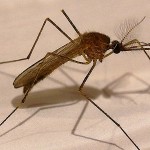 From the World Health Organisation (WHO) came cheering news at the weekend that finally a vaccine for malaria may just be three years away.
From the World Health Organisation (WHO) came cheering news at the weekend that finally a vaccine for malaria may just be three years away.
The WHO said at the weekend that malaria vaccine trials are on-going on 11 sites across seven countries in Africa indicated remarkable progress, with signals that the world might have its first successful malaria vaccine by the year 2015.
Experts say a malaria vaccine might offer the greatest hope of achieving significantly improved malaria control, particularly in Africa, where the ecological habitat is such that effective mosquito control has proved difficult or impossible to maintain.
World Health Organisation’s Director in charge of Global Malaria Programme, Dr. Robert Newman broke this cheering news to The Guardian on the sidelines of the ongoing African Union Abuja + 12 Special Summit on HIV/AIDS, Tuberculosis and Malaria.
He stressed that there was no successful vaccine yet for malaria treatment, stressing that scientists have been on a search for a very long time.
Newman said: “We should remember that most of the vaccines are against viruses bacteria. There are no vaccines as it is today for use against parasitic disease. There is a trial against malaria vaccine on-going in eleven sites in seven countries in Africa. The name of that vaccine is RLTSS and preliminary results have shown efficacy in different age groups of anywhere and with 55 per cent efficiency in preventing malaria. If you think about the number of cases of malaria, the public health benefit of that could be amazing.
“But, the trial is not finished yet. That trial will finish in having data available in 2014. WHO is therefore, tracking the progress very carefully. We have experts committed to this. There are people who are looking at this.”
Executive Director of the Roll Back Malaria Partnership, Dr. Fatoumata Nafo-Traoré said at the Abuja+12 Special Summit at the weekend that malaria deaths in Africa were down by one-third, compared to year 2000.
“More than a million lives have been saved from malaria since year 2000, most of them among African children under five years of age,” she noted.
She went on: “But we cannot rest on our oars. African countries continue to face many challenges, both financial and technical. To make rapid progress towards the 2015 malaria targets, we need to hit our enemy hard in its strongholds in sub-Saharan Africa while keeping up the fight elsewhere on the continent.
Meanwhile, in a renewed attempt to tackle Acquired Immune Deficiency Syndrome (AIDS)-related deaths in the country, President Goodluck Jonathan will today launch a new initiative on HIV infection and eradication.
The President will reveal his strategic plans as he opens the Abuja+12 African Union special summit on AIDS, Tuberculosis, malaria and other infectious diseases, at the International Conference Centre (ICC), Abuja.
Minister of Health, Prof. Onyebuchi Chukwu, at a pre-summit launch of Treatment 2015 Initiative by Joint United Nations Programme on HIV/AIDS (UNAIDS) yesterday, said this demonstrated government’s commitment to the fight against HIV/AIDS, adding the gesture is Jonathan administration’s zero tolerance on AIDS death and infection, and to leverage on success earlier recorded in the campaign.
In preparation for the new agenda, Chukwu noted that President had some day ago met with state governors, ministers, development partners and people living with HIV virus among other stakeholders to discuss his draft and have it fine-tuned.
In related development, Ethiopia is offering to host a regional centre for diseases control and prevention, the first of its kind on a continental level.
Ethiopian Health Minister, Tedros Ghebreyesus, said that the country would facilitate the establishment of an African Centre for Diseases Control and Prevention (African –CDC) or Health Commission for Africa under the umbrella of the African Union.
Source: The Guardian Nigeria

















